Chitra Stern possesses that calm charisma often seen in experienced business leaders. Proud but modest, she plays down the enormity of what she and her husband, Roman, have achieved since they undertook their first real-estate project and hotel in Ireland. “The hotel belonged to my husband’s family,” she explains. “It was a beautiful property that helped us understand the difficulties and advantages of the hospitality business.” One of the first lessons they learned is that size matters. “It was a small boutique hotel with only 25 rooms and no possibility of expanding,” Chitra says. “So there was no real potential for growth.”
Born in Singapore and educated in London, Chitra made her career in auditing and then consulting at PricewaterhouseCoopers. There, she met Roman, and in 2001 – after their Ireland project – they decided to start a hospitality business in the Algarve. In slightly over two decades, they have acquired a small empire of commercial real estate and five-star hotels and residences.
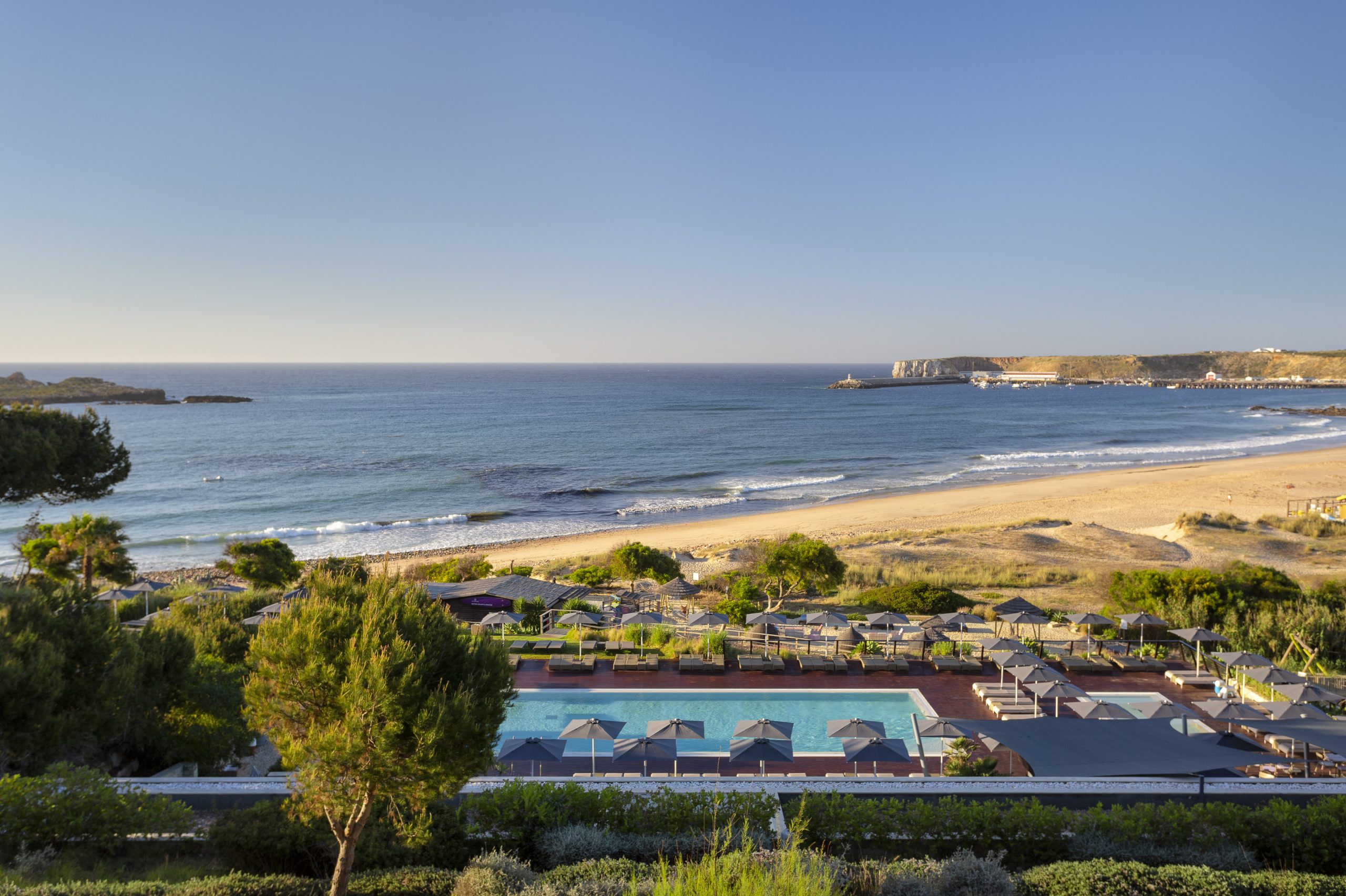
View from Martinhal Sagres, the first property by Chitra and Roman Stern in the Algarve.
Their first resort, Martinhal Sagres, overlooks the eponymous beach – hence the name of the company, which has now become an internationally revered brand. Chitra and Roman decided to apply the American concept of “resort unitization” – the buy-to-lease-back model – to their business. “A resort is an enormous piece of real estate,” Chitra explains, “so financing the construction – unless you are a billionaire – can be tricky. The lease-back model means that the customer buys one of our apartments [in Martinhal Lisbon Oriente], and then leases it back to us, so it goes back into the hotel inventory. We take care of everything – decoration, maintenance and renting it out when the owner is not using it.”
It sounds like a reasonable deal. Basically it is a way for the company to raise capital, and for the client to own a piece of valuable real estate without the headache of running it. Chitra summarises it as a “hassle-free investment.”
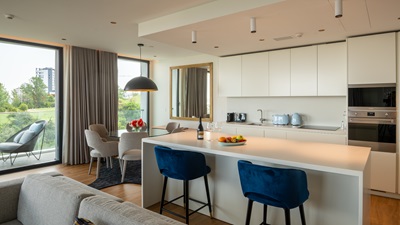
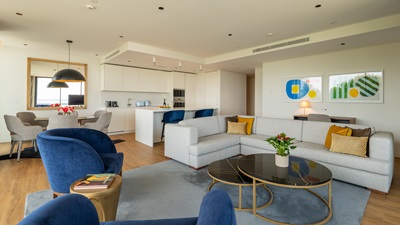
Kitchen and lounge of a 3-bedroom apartment at the new Martinhal Oriente, in Lisbon.
The model has become very attractive to investors. It can be advantageous for international corporations to own a luxury apartment in a capital city like Lisbon; it’s perfect for accommodating executives who visit the city. And one attraction of this particular property, Martinhal Lisbon Oriente, is its location in the Parque das Nações, a modern district of Lisbon that’s home to big tech companies (Microsoft and Vodafone, for example) and has huge exhibition facilities for international fairs. It also has a few attractions on its doorstep, such as the Oceanário de Lisboa (aquarium), the Pavilhão do Conhecimento – Ciência Viva (a science museum for the whole family) and the Telecabine, a cable car that glides 30 metres above the River Tejo and runs between the Oceanário and Vasco da Gama Tower.



The Terrace restaurant at Martinhal Oriente takes guests into a journey of discovery blending Mediterranean and Oriental cuisine.
In the Algarve, besides Sagres, Martinhal offers Martinhal Quinta, a resort that takes the concept of luxury family accommodation to the next level, offering up to five-bedroom villas and townhouses, each with its own pool and all the amenities you could possibly think of – including a golf course on the doorstep.
Other investors who may find this model attractive are those looking for a golden visa. This is an EU scheme that gives qualifying investors and their families the right to live, work and study in Portugal, with the added bonus of total freedom to travel across the whole of the EU. Rumour has it that the scheme may come to an end soon, so if you are considering moving from our beloved rainy island, don’t delay.
The real-estate sector has traditionally been a world of men, so I wonder how difficult it may have been for Chitra to earn the respect of the developers’ community, especially at the beginning, when she couldn’t even speak the language. She is quick to dismiss my concerns. “Oh it was super-easy for me,” she says with a smile. “I have always operated in the realms of men, so to speak. In the first place, my father always encouraged us to dream high. He’d give us speeches about how there was no job a woman couldn’t do, including prime minister. I studied engineering, where we were 10 percent women and 90 percent men, and then went on to work at PricewaterhouseCoopers, with mostly men.” She pauses, takes a sip of her tea and adds, “Furthermore, my husband has always encouraged me to move forward and to be the face of the business. I just let him do all the hard work,” she laughs.
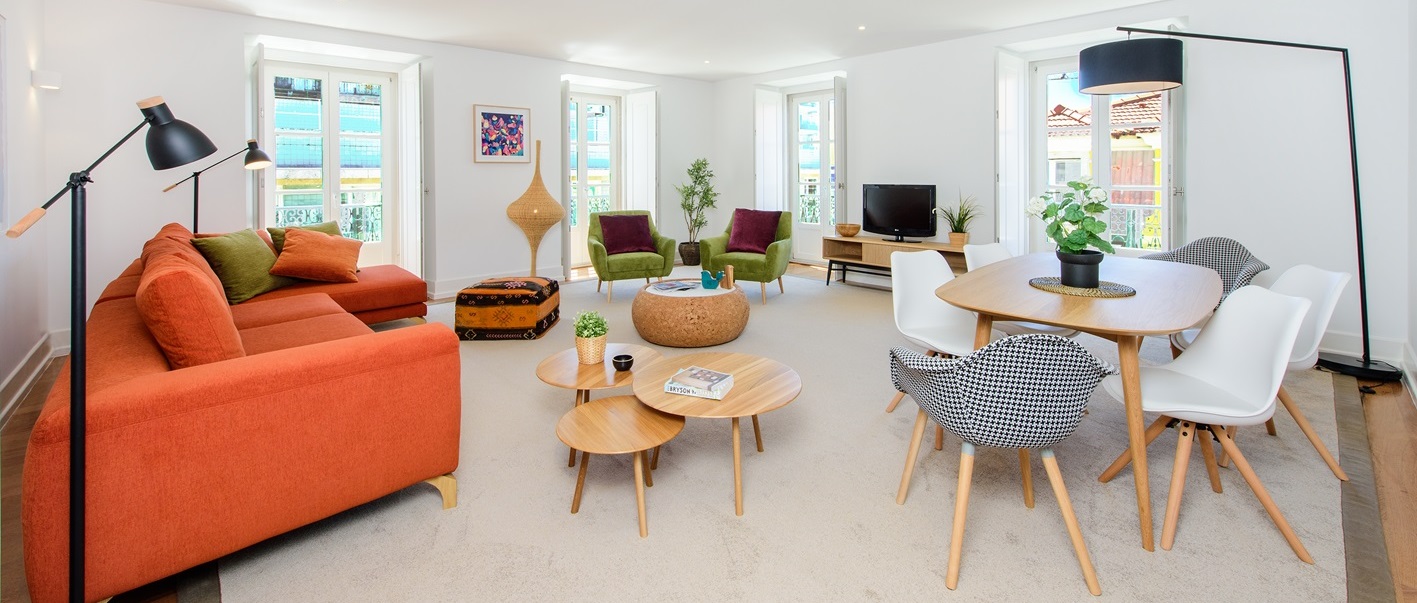
Martinhal Chiado is located in the heart of Old Lisbon, so guests can step out of it and be immersed in the historical part of the city.
Retirement for Chitra looks far away on the horizon. “Since 2014, we’ve been finishing one project after the other, including commercial real estate and an education hub, the United Lisbon International School, which opened its gates in September 2020,” she says. “My feeling is that we need to consolidate and secure our existing businesses in these times of uncertainty before thinking of retirement.” I push a bit more; she smiles and relents: “OK, I think that part of this retirement idea for me is self-improvement. I am thinking of learning to paint with oils … who knows?”
What is clear is that we have not seen all of Chitra Stern’s achievements. This intelligent, warm woman seems determined to leave her mark in the world – and I have no doubt she will.
Words: Julia Pasarón





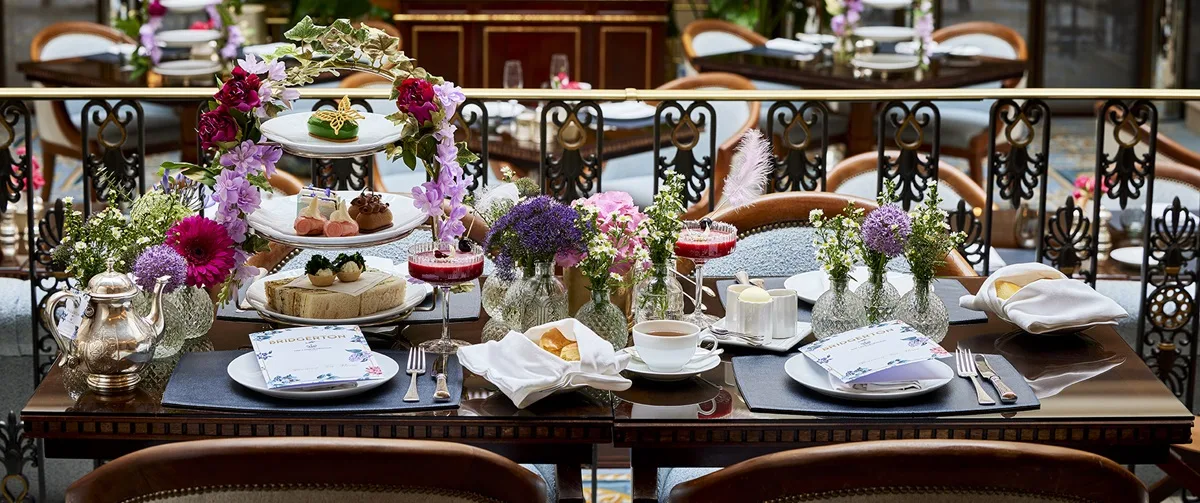



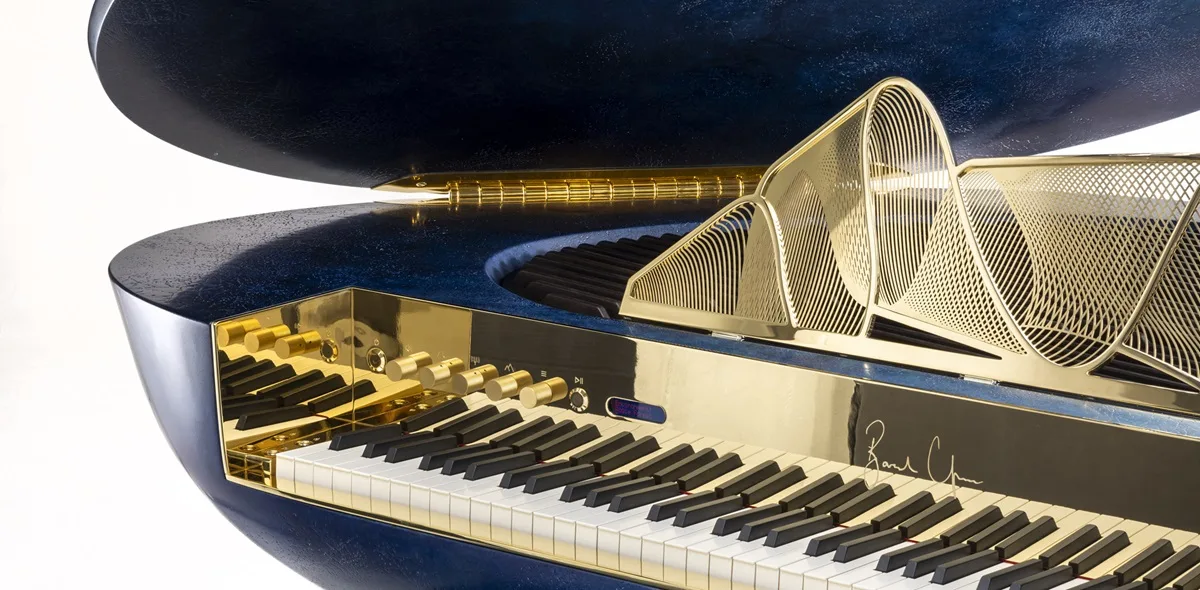
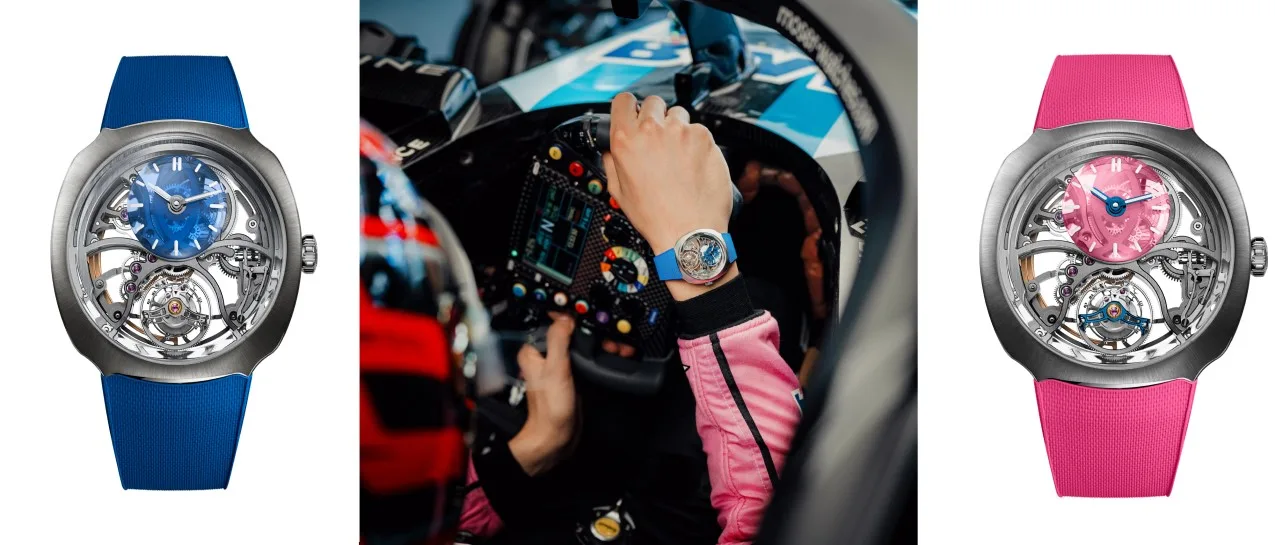
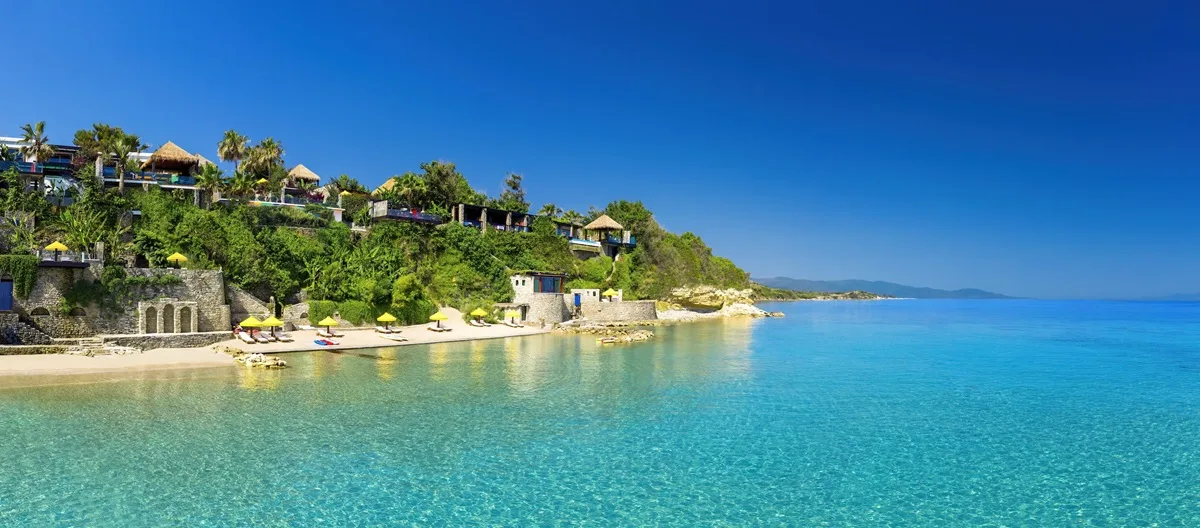
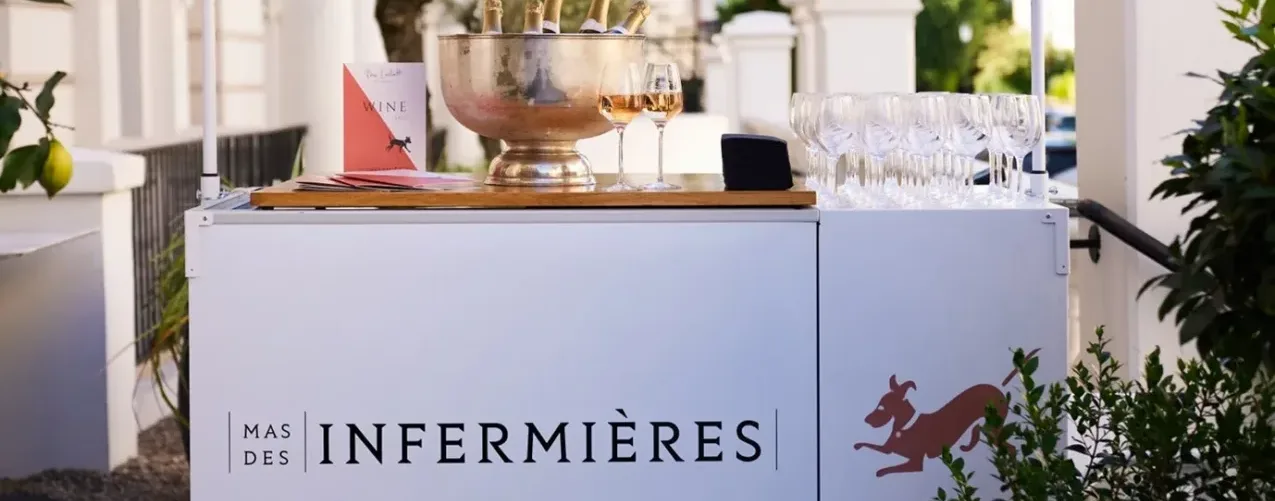

Show Comments +